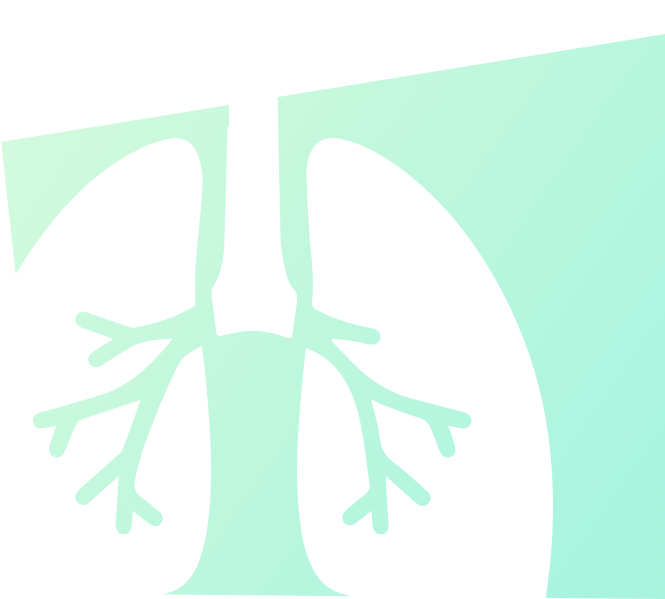- Pseudomonas. Cystic Fibrosis Foundation website. Accessed June 1, 2021. https://www.cff.org/Life-With-CF/Daily-Life/Germs-and-Staying-Healthy/What-Are-Germs/Pseudomonas/
- Tramper-Stranders GA, van der Ent CK, Wolfs TFW. Detection of Pseudomonas aeruginosa in patients with cystic fibrosis. J Cyst Fibros. 2005;4 Suppl 2:37-43.
- Cystic fibrosis. US National Library of Medicine website. Updated August 18, 2020. Accessed June 1, 2021. https://medlineplus.gov/download/genetics/condition/cystic-fibrosis.pdf
- Moore JE, Mastoridis P. Clinical implications of Pseudomonas aeruginosa location in the lungs of patients with cystic fibrosis. J Clin Pharm Ther. 2017;42(3):259-267. doi:10.1111/jcpt.12521
- Hansen CR, Pressler T, Høiby N. Early aggressive eradication therapy for intermittent Pseudomonas aeruginosa airway colonization in cystic fibrosis patients: 15 years experience. J Cyst Fibros. 2008;7(6):523-530. doi:10.1016/j.jcf.2008.06.009
- Stuart B, Lin JH, Mogayzel PJ Jr. Early eradication of Pseudomonas aeruginosa in patients with cystic fibrosis. Paediatr Respir Rev. 2010;11(3):177-184. doi:10.1016/j.prrv.2010.05.003
- Cystic Fibrosis Foundation. 2019 Patient Registry Annual Data Report. Bethesda, MD: Cystic Fibrosis Foundation; 2019. Accessed June 1, 2021. https://www.cff.org/Research/Researcher-Resources/Patient-Registry/2019-Patient-Registry-Annual-Data-Report.pdf
- Cunningham JC, Taussig LM. Respiratory System. In: An Introduction to Cystic Fibrosis: For Patients and Their Families. 6th ed. Cystic Fibrosis Foundation; 2013:41-58.
- Li Z, Kosorok MR, Farrell PM, et al. Longitudinal development of mucoid Pseudomonas aeruginosa infection and lung disease progression in children with cystic fibrosis. JAMA. 2005; 293(5):581-588.
- Saiman L, Siegel JD, LiPuma JJ, et al. Infection prevention and control guideline for cystic fibrosis: 2013 update. Infect Control Hosp Epidemiol. 2014;35 Suppl 1:S1-S67. doi:10.1086/676882
- Cystic fibrosis. Mayo Clinic website. Accessed June 1, 2021. https://www.mayoclinic.org/diseases-conditions/cystic-fibrosis/diagnosis-treatment/drc-20353706
- Bacteria and Antibiotic Resistance In People with Cystic Fibrosis. Cystic Fibrosis Foundation website. Accessed June 1, 2021. https://www.cff.org/PDF-Archive/Bacteria-and-Antibiotic-Resistance-in-People-With-CF
- Svedberg M, Gustafsson P, Tiddens H, Imberg H, Pivodic A, Lindblad A. Risk factors for progression of structural lung disease in school-age children with cystic fibrosis. J Cyst Fibros. 2020;19(6):910-916. doi:10.1016/j.jcf.2019.10.014
- Calthorpe RJ, Smith SJ, Rowbotham NJ, et al. What effective ways of motivation, support and technologies help people with cystic fibrosis improve and sustain adherence to treatment? BMJ Open Respir Res. 2020;7(1):e000601. doi:10.1136/bmjresp-2020-000601
- Bregnballe V, Schiøtz PO, Boisen KA, Pressler T, Thastum M. Barriers to adherence in adolescents and young adults with cystic fibrosis: a questionnaire study in young patients and their parents. Patient Prefer Adherence. 2011;5:507-515. doi:10.2147/PPA.S25308
- Bishay LC, Sawicki GS. Strategies to optimize treatment adherence in adolescent patients with cystic fibrosis. Adolesc Health Med Ther. 2016;7:117-124. doi:10.2147/AHMT.S95637
- Zobell JT, Moss J, Heuser S, Roe L, Young DC. Understanding the expanding role of pharmacy services in outpatient cystic fibrosis care. Pediatr Pulmonol. 2021;56(6):1378-1385. doi:10.1002/ppul.25283

Fighting Pseudomonas aeruginosa
Early detection of Pseudomonas aeruginosa is the first step in fighting it. If you have already been infected, treatments are available to help you fight back. Inhaled antibiotics are most often used for people with cystic fibrosis (CF) and Pseudomonas aeruginosa.

Quick takeaways
- Medications for Pseudomonas aeruginosa are different from medications for CF
- Staying on treatment is important
- Starting treatment at the first sign of infection could make a difference
Not all CF medications have the same goal
As someone living with CF, you’re likely to be prescribed many different medications. It’s important to remember that each one serves a different purpose. There are medications prescribed for CF and there are medications prescribed for Pseudomonas aeruginosa. That's because they are two different diseases.  Pseudomonas aeruginosa can arise as a result of CF, but it's important to know that they are different.
Pseudomonas aeruginosa can arise as a result of CF, but it's important to know that they are different.
Here are the most common CF medication goals:

- Preventing and controlling infections in the lungs
- Removing and loosening mucus from the lungs
- Helping defective proteins work properly
- Treating and preventing intestinal blockage
- Providing proper nutrition
Staying the course
If you’ve been prescribed a medication to treat a Pseudomonas aeruginosa infection, you might feel better early in the course of treatment. However, it’s important to stay on all medications your doctor has prescribed. Talk to your doctor before making any changes to your treatment plan.
Did you know?
A single Pseudomonas aeruginosa infection could cause damage to the lungs.

“I’m feeling better with my other CF treatments, so why do I need to take my treatment for Pseudomonas aeruginosa?”
Taking your medication exactly as directed by your doctor is important.
Here’s what could happen if you skip doses or don’t complete the full course of therapy:
- The effectiveness of the treatment could decrease
- The likelihood that bacteria will develop resistance could increase
- This means the infection may not be able to be treated by any antibacterial drugs in the future
Tips for staying on treatment
In one study of doctors and people with CF and their families, electronic questionnaires were promoted online, completed, and analyzed to identify common themes impacting adherence. Having a routine was the most frequently used strategy for staying on treatment.
Having support from different sources is important for managing life with CF. These can include positive support from your CF care team and doctors, mental health support, and peer and family support.
For long-term victories, set short-term goals. Like many things in life, taking it day by day can help with feeling overwhelmed.
Using timers or apps can remind you when to take treatments, and tools like smartwatches and journals can help with tracking how you’re feeling.






